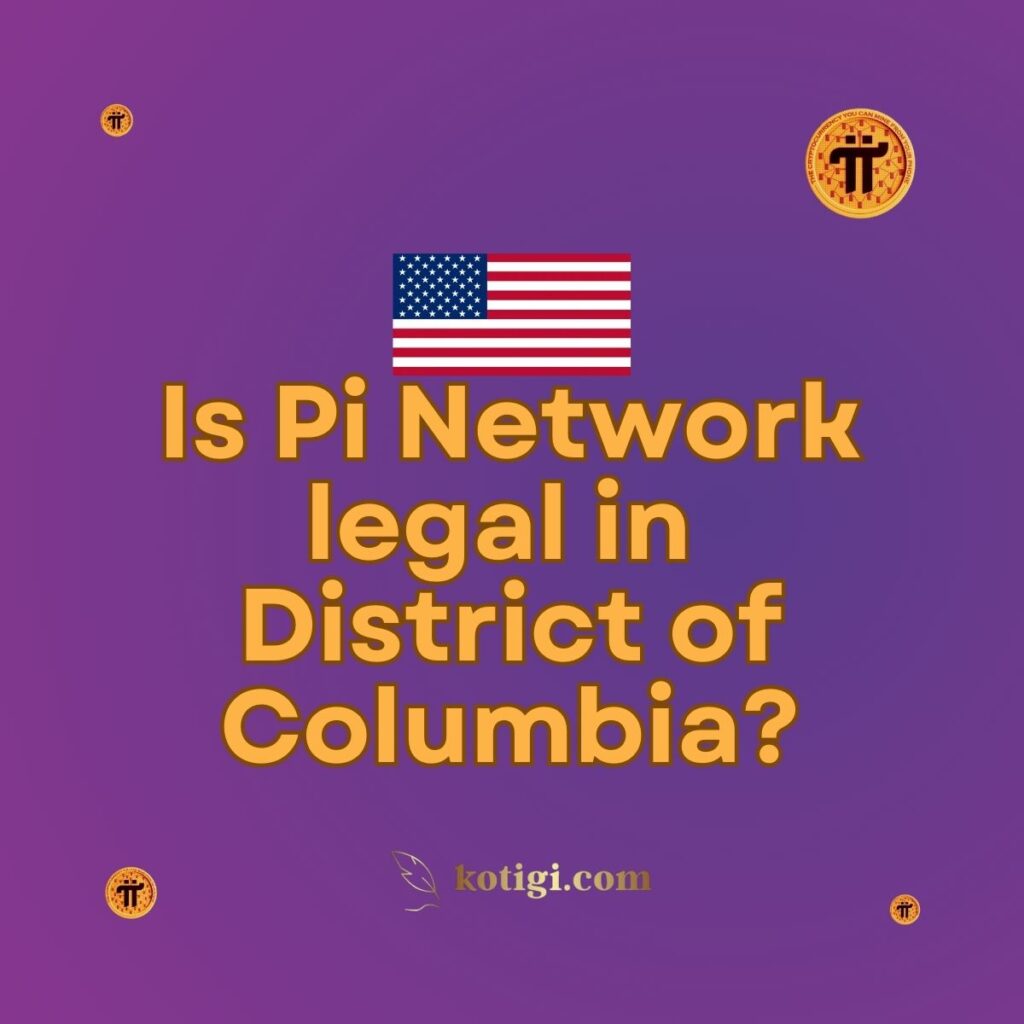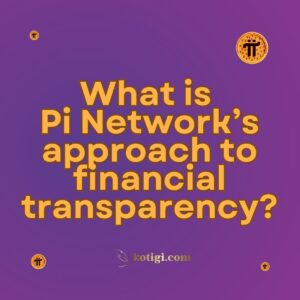
Is Pi Network legal in the District of Columbia?
Yes, Pi Network is legal in the District of Columbia. Users can mine and utilize Pi tokens without facing significant legal restrictions. However, it’s crucial to stay informed about evolving regulations and ensure compliance with both local and federal laws.
Introduction
As the world of cryptocurrency continues to expand, platforms like Pi Network are transforming how individuals interact with digital currencies. Pi Network allows users to mine Pi tokens using their mobile devices, making cryptocurrency mining accessible to a broader audience. However, with this growing interest comes questions about the legality of such platforms. This article will explore the legal status of Pi Network in the District of Columbia, discussing relevant regulations, compliance requirements, and community engagement opportunities. By providing this comprehensive overview, we aim to equip users with the necessary information to navigate the cryptocurrency landscape confidently.
1. Overview of Pi Network and Its Legal Standing in the District of Columbia
1.1 What is Pi Network?
Pi Network is a digital currency platform designed to enable users to mine cryptocurrency easily. By utilizing mobile devices, Pi Network democratizes access to cryptocurrency mining, allowing individuals without technical expertise to participate in the blockchain ecosystem.
1.2 The District of Columbia’s Cryptocurrency Landscape
The District of Columbia has shown a growing interest in blockchain technology and cryptocurrencies, making it an attractive environment for digital currency platforms. The local government and various organizations are exploring the potential applications of blockchain technology, fostering innovation and growth in this sector.
1.3 Legal Framework for Cryptocurrencies in the District of Columbia
While the District of Columbia does not have specific laws directly regulating cryptocurrencies, it follows federal regulations that govern digital currencies. This means that, generally, users can engage with platforms like Pi Network without significant legal barriers.
1.4 Accessibility of Pi Network in the District of Columbia
Residents can easily access Pi Network by downloading the mobile app from popular app stores. The platform’s user-friendly design and straightforward registration process allow users to start mining quickly and efficiently.
2. Legal Considerations for Pi Network Users in the District of Columbia
2.1 Regulatory Environment
The regulatory environment for cryptocurrencies in the District of Columbia is relatively open. While there are no specific laws prohibiting the use of platforms like Pi Network, users should stay informed about potential changes in regulations that could affect their participation.
2.2 Compliance with Federal Regulations
Users in the District of Columbia must adhere to federal laws concerning cryptocurrencies. Agencies like the Securities and Exchange Commission (SEC) and the Internal Revenue Service (IRS) provide guidelines that users should be aware of to ensure compliance.
2.3 Data Privacy and Protection
Pi Network implements a Know Your Customer (KYC) process for user verification. Understanding how the platform handles personal data and user privacy is essential for residents to ensure their information is secure.
2.4 Tax Implications
Residents should also consider the tax implications associated with earning Pi tokens. The IRS classifies cryptocurrencies as property, meaning any gains from Pi tokens may be subject to capital gains tax. Keeping accurate records of all transactions is vital for compliance.
2.5 Token Legitimacy and Future Potential
Currently, Pi tokens are not tradable on public exchanges, which raises questions about their legitimacy and future utility. Users should monitor official communications regarding future exchange listings and potential uses for Pi tokens within the ecosystem.
3. Compliance Requirements for District of Columbia Users
3.1 KYC Compliance
To enhance security and mitigate fraud, Pi Network requires users to complete a KYC process. This step is crucial for accessing all features of the platform and ensures a safer environment for users.
3.2 Record-Keeping for Tax Purposes
Users should maintain accurate records of their mining activities and any transactions involving Pi tokens. This information is essential for preparing for any potential tax obligations and ensuring compliance with IRS guidelines.
3.3 Understanding IRS Guidelines
As the IRS treats cryptocurrencies as property, it’s important for users to understand the tax implications of their activities. Familiarizing themselves with IRS guidelines will help users manage their tax responsibilities effectively.
3.4 Security Measures
Users must implement strong security measures to protect their accounts on Pi Network. Creating complex passwords, enabling two-factor authentication, and being cautious about sharing personal information are essential steps to safeguard accounts.
4. Engaging with Pi Network in the District of Columbia
4.1 Community Involvement Opportunities
Joining local cryptocurrency groups or online forums can provide users in the District of Columbia with valuable insights and support. Engaging with fellow users fosters a sense of community and enhances understanding of Pi Network.
4.2 Hosting Educational Events
Organizing or participating in educational workshops focused on blockchain technology and Pi Network can promote awareness and understanding within the community. Empowering residents with knowledge will drive increased adoption.
4.3 Collaboration with Local Businesses
Local businesses can play a significant role in promoting Pi Network by accepting Pi tokens for goods and services. This practice enhances token utility and encourages local economic engagement, benefiting both users and businesses.
4.4 Leveraging District-Level Initiatives
The District of Columbia’s interest in blockchain technology presents opportunities for Pi Network to engage in local initiatives. Collaborating with government entities can enhance visibility and potentially expand the user base.
4.5 Building a Local User Community
Creating a local user community through meetups and social media platforms can foster a supportive network for Pi Network users in the District of Columbia. This community can share experiences, provide tips, and enhance overall user engagement.
5. Current and Future Utility of Pi Tokens
5.1 Anticipated Use Cases for Pi Tokens
While Pi tokens are not currently exchangeable, potential future applications may include transactions within the Pi Network ecosystem, access to services, and participation in decentralized applications (dApps) as the platform evolves.
5.2 Importance of Market Listing
If Pi tokens gain traction and are listed on cryptocurrency exchanges, this could provide users with tangible assets to trade or utilize. Staying informed about potential exchange listings is essential for maximizing token value.
5.3 Speculative Nature of Tokens
Users should approach Pi tokens as speculative assets until their market value is established. Conducting thorough research and avoiding impulsive investment decisions is crucial to managing risks effectively.
5.4 Role of Community Engagement in Token Value
The success of Pi tokens will heavily depend on community engagement and active participation. A robust user community can drive demand and support the long-term viability of Pi tokens.
6. Legal Implications of Cryptocurrency Transactions
6.1 Federal Standards for Cryptocurrency Transactions
Federal laws govern cryptocurrency transactions in the U.S., impacting how District of Columbia users interact with platforms like Pi Network. Understanding these standards will help users engage responsibly while minimizing legal risks.
6.2 Implications of Local Regulations
While the District of Columbia lacks strict cryptocurrency laws, users should remain vigilant about potential regulatory changes that may arise in the future. Keeping abreast of developments is essential for informed participation.
6.3 Tax Obligations for Cryptocurrency Activities
Users should prepare for potential tax implications associated with cryptocurrency holdings. Maintaining accurate records of mining activities and transactions is invaluable for future tax compliance.
6.4 Consumer Protection Regulations
Federal consumer protection laws apply to digital currencies, ensuring that users have rights when engaging in cryptocurrency transactions. District of Columbia residents should familiarize themselves with these protections to safeguard their interests.
7. Future Outlook for Cryptocurrency Regulations
7.1 Emerging Federal Legislation
The landscape of cryptocurrency regulations is continuously evolving at the federal level. District of Columbia residents should stay informed about proposed laws that could affect the use of Pi Network and other cryptocurrencies.
7.2 Potential for Local Regulatory Developments
As the cryptocurrency market matures, the District of Columbia may choose to implement specific regulations addressing digital currencies. Users should be prepared to adapt to new compliance requirements as they arise.
7.3 Industry Standards and Best Practices
As the cryptocurrency industry develops, platforms like Pi Network will likely adopt industry best practices, which could affect user guidelines. Staying informed about these changes will help users navigate the evolving landscape effectively.
7.4 International Regulatory Trends
Global regulatory developments can influence local practices. District of Columbia users should be aware of international trends in cryptocurrency regulations, as they may impact the broader market and the use of platforms like Pi Network.
Conclusion
Pi Network is legal for users in the District of Columbia, allowing them to engage with the platform without facing significant restrictions. However, as the regulatory landscape evolves, it’s essential for users to stay informed about potential changes at both local and federal levels. By prioritizing compliance, engaging with local initiatives, and protecting personal data, residents can enjoy a secure and rewarding experience with Pi Network.
Key Takeaways
- Legality Confirmed: Pi Network is fully legal in the District of Columbia, enabling users to mine and utilize the platform without facing specific restrictions.
- Stay Informed on Compliance: Users should remain aware of federal regulations and maintain meticulous records for potential future tax implications.
- Potential Token Utility: While currently not exchangeable, Pi tokens may hold future value and use cases as the platform develops.
- Prioritize Data Security: Understanding Pi Network’s privacy policies and implementing robust security measures will protect personal information from potential threats.
- Engagement Opportunities: Active local involvement through events, partnerships, and community initiatives can significantly enhance Pi Network’s visibility and adoption in the District of Columbia, fostering a supportive ecosystem for all users.





